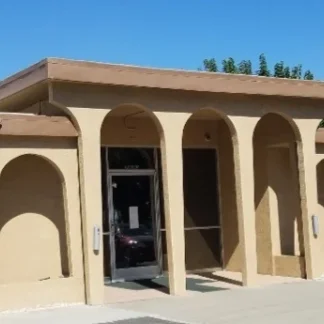A Peace of Mind Sober Living - Men's Home
A Peace of Mind Sober Living Men’s Home, located in Riverside, California, offer...
Cedar House Life Change Center is a dual diagnosis drug and alcohol rehab center based in Bloomington, CA. It is committed to providing comprehensive care to men and women seeking recovery from substance use disorders.
With a dedicated team of professionals and a person centered approach, they provide a range of specialized services aimed at supporting individuals through sliding scale payment. Their services and levels of care include:
Cedar House’s residential level of care is a 12 Step philosophy treatment program that offers a comprehensive, evidence based curriculum that addresses a wide array of substance use and mental health disorders. With 24/7 care and a focus on individualized treatment plans, residents receive alumni support along with therapy, counseling, group activities, and life skills development.
The outpatient treatment program provides flexible options for individuals who require less intensive care or have completed residential treatment. Through individual counseling, group therapy, education sessions, and ongoing support, individuals receive the necessary tools and guidance to maintain their recovery while living in the community.
At Cedar House, the facility understands the complex relationship between substance use disorders and mental health conditions. Their specialized dual diagnosis treatment approach addresses both aspects simultaneously, ensuring that individuals receive comprehensive care tailored to their unique needs and challenges.
The sober living program provides individuals with a supportive and substance free living environment as they transition from the initial treatment phase to independent living. In this structured program, individuals engage in peer support, accountability measures, life skills training, and continued therapy.
Withdrawal management at Cedar House offers a specialized level of care for those in need of detoxification. Under the supervision of experienced medical professionals, individuals receive personalized support and medical monitoring to safely manage the physical and psychological symptoms of withdrawal.
Contact us for more information: (909) 421-7120

Connect with Cedar House Life Change Center by calling their admissions team directly.
(909) 421-7120 Website Get DirectionsThe Commission on Accreditation of Rehabilitation Facilities (CARF) is a non-profit organization that specifically accredits rehab organizations. Founded in 1966, CARF's, mission is to help service providers like rehab facilities maintain high standards of care.
CARF Accreditation: Yes
Group therapy is any therapeutic work that happens in a group (not one-on-one). There are a number of different group therapy modalities, including support groups, experiential therapy, psycho-education, and more. Group therapy involves treatment as well as processing interaction between group members.
A Peace of Mind Sober Living Men’s Home, located in Riverside, California, offer...
Riverside County Department of Mental Health – Wellness and Recovery Clinic is a...
Pacific Manor Recovery is located in Riverside, California, and offers mental he...
Riverside Comprehensive Treatment Center is a private rehab located in Riverside...